AAA devs get back to making games, not products
"It was not the way I envisioned creating video games," says Simon Darveau. He'd been with Ubisoft for half a decade, where he worked as a game designer on the Assassin's Creed series. Being a AAA developer on an established franchise certainly had its perks--a decent salary, a secure job. But it also meant having an increasingly specialized role in the development process, resulting in less and less creative input. Darveau wasn't satisfied.
"Right now [AAA development] is more of a production paradigm, where you know how to reproduce a similar formula," he says. "This was not the dream I had during my childhood. What I had imagined was more like creating something with a team of passionate people who are defining, with their hands and with their talent and with their creativity, what the game will look like." And so, in 2012, Darveau quit his job.
Darveau is one of many developers with years of AAA experience who've set out to form an independent studio. A quick glance through the rosters of development houses such as Klei Entertainment (Mark of the Ninja), Red Barrels (Outlast), and The Fullbright Company (Gone Home) reveals that many of their devs have 10+ years of experience, with backgrounds spanning a range of AAA studios and projects. Not so long ago, we associated independent studios with untested developers looking to break into the industry. Now experienced devs are abandoning the big-budget scene in droves to head up their own operations.
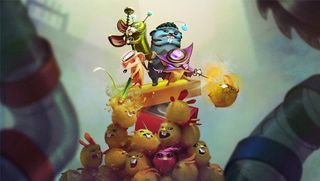
After leaving Ubisoft, Darveau put in motion a plan to launch his own studio, Spearhead Games, with the help of his long-time friend Malik Boukhira, who at the time was design director for Dead Space 3. "When we started, we had nothing but a game pre-prototype, and I was living in Malik’s office almost like a cat," he says.
The two pitched their concept--a cooperative puzzle game called Tiny Brains--to developers in the Montreal area from Boukhira's living room, in hopes of bringing on more talent. The first hurdle, they knew, would be in convincing others to leave the comfort of their AAA jobs and join up.
"We had this objective to align our game with the next-generation launch, so we had to build a team very fast," Darveau says. "We had a year to find a studio, build a team, develop the game, and ship it." The prototype had no graphics, and Spearhead didn't even have an office, but the barebones pitch worked. Within weeks, Spearhead Games comprised about ten members, and development on Tiny Brains began in earnest. "It was surprisingly easy," Darveau recalls.
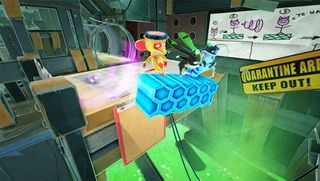
Wait a second. Getting a group of people to willingly leave their salaried positions--ones with health benefits and reasonable job security--to join an unproven studio with no office space was surprisingly easy? What the hell is going on in the AAA scene to make developers feel this is a worthwhile move? Darveau says that many, like him, simply grew tired of the assembly-line process involved in making the huge games that so many people know and love.
Sign up to the 12DOVE Newsletter
Weekly digests, tales from the communities you love, and more
Consider this: By the end of the seventh console generation, we'll have seen at least nine Call of Dutys, six Assassin's Creeds, five Battlefields, and four Halos. These franchises are all backed by hundreds of developers and multi-million dollar budgets, resulting in obscenely high production values. But as games get bigger and bigger, the roles of their developers become more and more granular. Every subtle character animation, every plume of smoke, every echoing footstep is the result of months of work by specialized teams--and while many of them no doubt love what they do, some find the cyclical nature of iteration to be stifling.
"At the end, you feel like you have your name on something that was marketed and treated like a product--that it was not the outcome of people," says Raphael van Lierop, founder of Hinterland Games. "It just feels like this really polished piece of glass that’s perfect, and you can’t see anything about it that’s wrong… and yet, it doesn’t have any personality as a result."
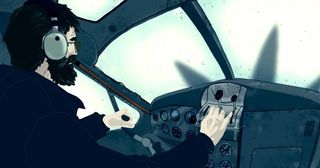
van Lierop's been making games for some 13 years. In his early days, he built up contacts in the industry by working as a freelancer, often taking on technical writing and documentation projects. This eventually landed him a job at Relic, where he started his career as a developer on Warhammer 40,000: Dawn of War.
"Even back then, I already had a feeling, like a lot of people, 'Someday I’m gonna have my own studio,' but I didn’t really know what that meant," van Lierop says. "And, of course, you’re really naive in thinking you can do everything, and you quickly realize that the learning curve is just so steep."
van Lierop stuck with Relic for a number of years, leaving shortly after shipping Company of Heroes to co-found a company called Radar, which specialized in third-party development of original IPs. Afterwards he jumped around a bit--including a stint at Ubisoft Montreal to work on Far Cry 3 in pre-production--before eventually heading back to Relic, where he shipped Warhammer 40,000: Space Marine as game director. After the project wrapped up, he started to feel a bit restless with AAA development, and gave some serious thought to his next move.
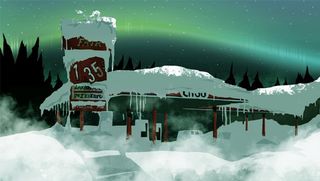
"I saw a lot of colleagues and friends who were just jumping into this gold rush of iPhone games and little independent studios,'" he says. One such colleague was Jamie Cheng, founder of Klei Entertainment, who van Lierop had worked with and befriended at Relic.
"We had lunch together and I told him about my plans and what I wanted to accomplish, and he was like, 'You know what’s so funny is: all these years you’ve chased the legitimacy of working on these big AAA games so that you could have your own studio, whereas I just went into an area of the industry where it didn’t really matter if you had a lot of experience or not. You just go and make a cool independent game and that’s the only thing that matters.' And it was this moment for me where I was like, 'Oh shit, he’s totally right.'"
Like Darveau, van Lierop gave up AAA development and formed an independent studio. Founded in 2012, Hinterland Games is based in the rural countryside of northern Vancouver Island; van Lierop fondly describes it as being "literally on the verge of the wilderness and figuratively on the edge of the industry." Its first project, a disaster survival game called The Long Dark, is currently active on Kickstarter, and, at the time of this story, has just surpassed its halfway mark for funding.
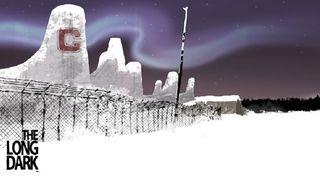
van Lierop admits that having complete creative freedom comes at a price--access to resources, the uncertainty of success--but says that the passion his team has for the project is an incredible inspiration. There's a sort of satisfaction gained from knowing that his teammates (again, all with AAA backgrounds) are willingly, excitedly pouring everything they have into bringing an idea to life. Everyone at Hinterland is happy that The Long Dark is beholden only to themselves and to the gamers committed to its creation. It's more personal that way.
Such an opportunity is enticing because it hearkens back to "the way the industry used to be," van Lierop says.
"I think that for a lot of [devs], it’s wanderlust. Not looking at [design] anymore like it’s just a job, or it’s just another product that you’re making, but to remember those experiences that we had when we started that inspired us to make awesome games--trying to go back to that and find that again," van Lierop says. "Working with small teams is really a big part of that."
Darveau's thoughts are similar: "This is the reason why I joined the industry in the first place: to create, to innovate, to build something that will really please the people." For him, the experience of putting together a team and creating the game they set out to to make is worth every risk, even if it ultimately results in failure. "This was the experience I wanted to live," he says. "No matter what happens in the future, I am really proud that I had the chance to live it at least once, for one year."
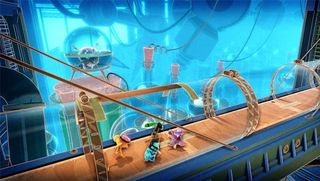
Spearhead Games and Hinterland Games are just two players in a rapidly expanding list of independent studios. AAA titles will continue to play a pivotal role in the industry, no doubt, but the increasing success of smaller development houses--and the staggering number of AAA developers leaving to join them--suggests that both gamers and game makers are ready for something different. The future of gaming will be driven by a wave of "new design," Darveau says, and it's the smaller teams, the ones flexible enough to adapt on-the-fly and make decisions quickly, that will be its genesis.
"Somehow it tells me everybody knows, at some level, that the industry is about to change, that a revolution is about to occur in a huge way," he says. "People maybe won’t say it like that, but they can see it--otherwise they would not have acted, and they would not have done something as insane as quitting a lead position on a AAA project with a super-safe job to join the little two guys that are pitching a game in their living room. Right?"
Ryan was once the Executive Editor of GamesRadar, before moving into the world of games development. He worked as a Brand Manager at EA, and then at Bethesda Softworks, before moving to 2K. He briefly went back to EA and is now the Director of Global Marketing Strategy at 2K.
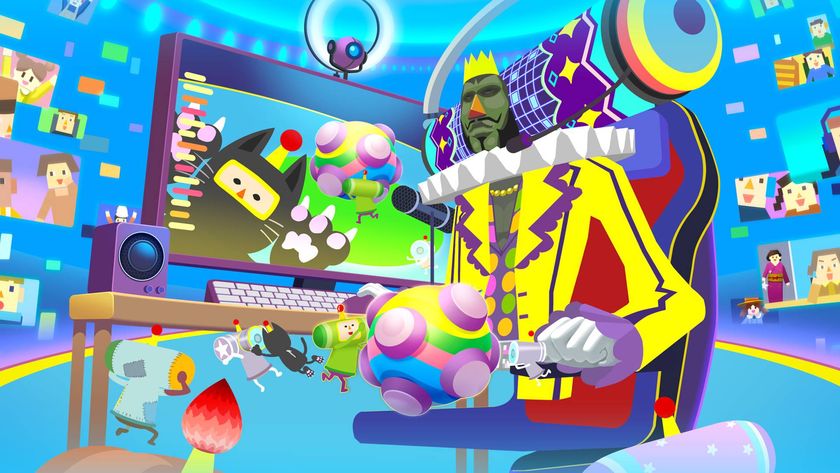
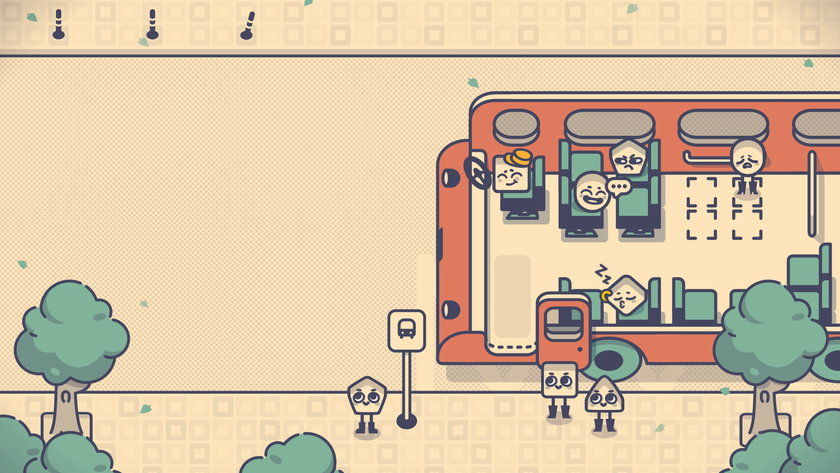
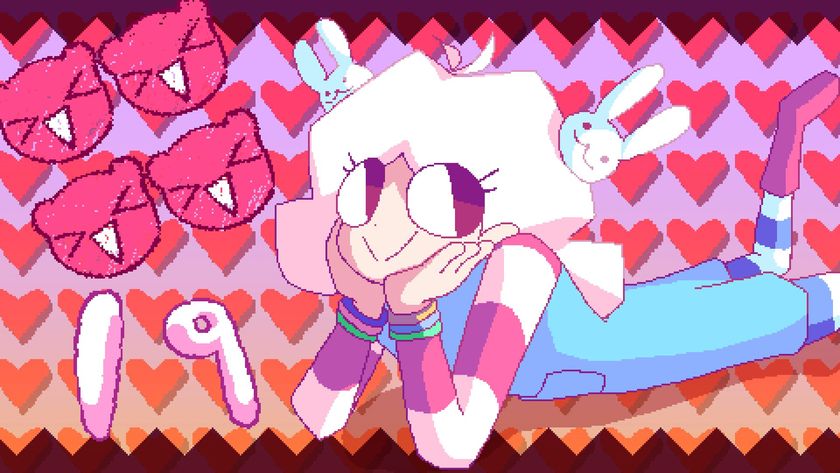
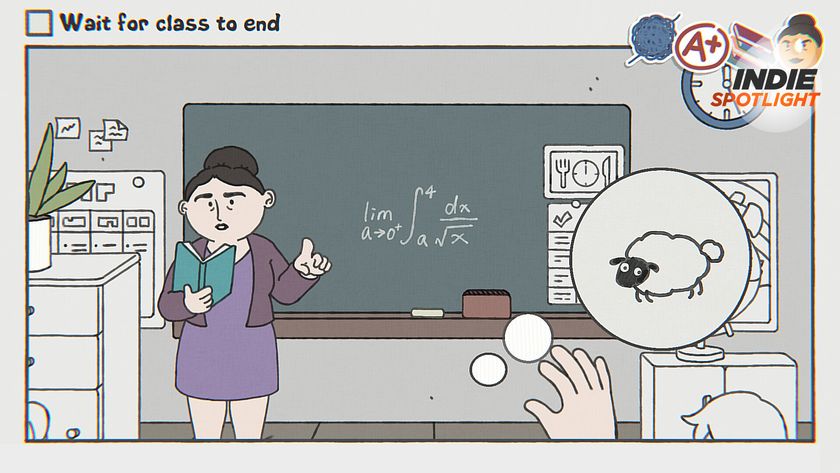
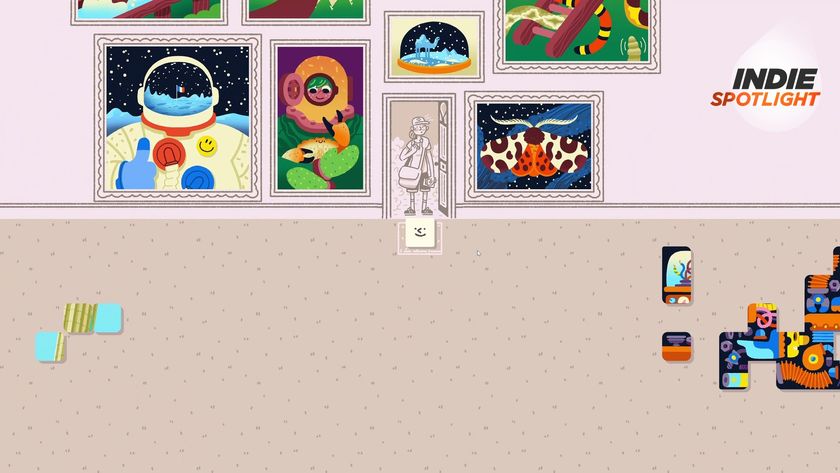
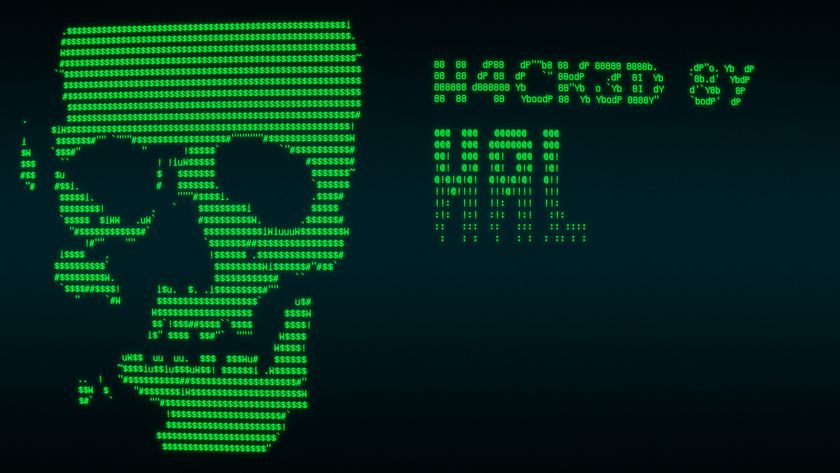
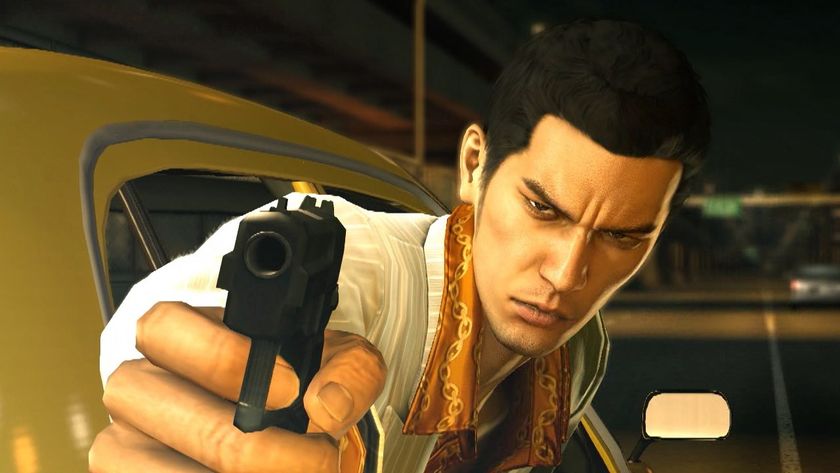


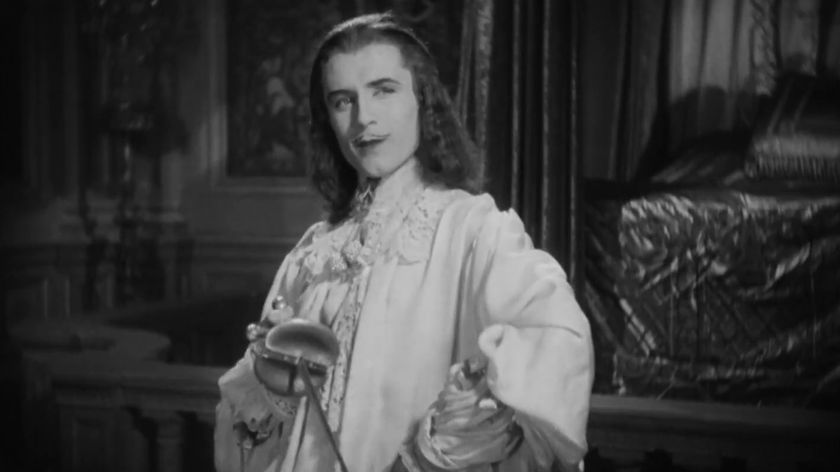



The first all-new Katamari Damacy game in almost 8 years is trapped in Apple Arcade jail, and I can only hope it follows in Hello Kitty Island Adventure's footsteps to eventually escape

This puzzle game almost made me want to talk to strangers after its chill Steam Next Fest demo got me hooked on organizing seating charts





